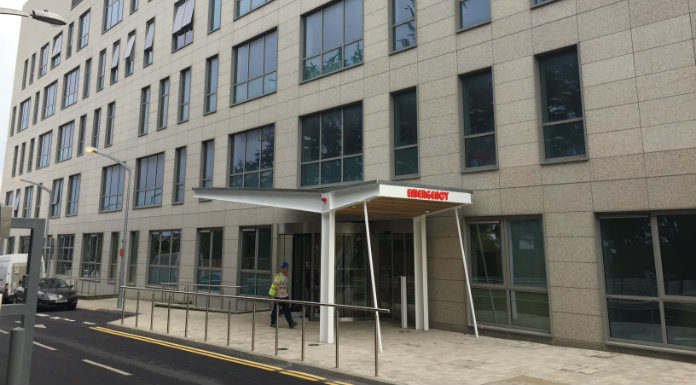The UL Hospitals Group is cancelling scheduled surgeries and outpatient appointments until further notice.
The hospital says it regrets the move, but is doing so in order to prioritise high volumes of emergency Covid and non-Covid patients.
FULL STATEMENT FROM UL HOSPITALS GROUP:
UL Hospitals Group has today announced the deferral, until further notice, of the majority of scheduled surgery and outpatient appointments across the Group. This includes University Hospital Limerick, Ennis Hospital, Nenagh Hospital, St John’s Hospital and Croom Orthopaedic Hospital. University Maternity Hospital Limerick is unaffected by the reductions. All affected patients are being contacted directly by the hospital.
As we experience a significant surge in Covid-19 activity, we are also reminding members of the public that the Emergency Department at University Hospital Limerick is extremely busy and patients should consider all other care options before presenting to ED. The ED remains open for emergency care and patients must continue to present for life-threatening emergencies such as heart attack, stroke etc.
We regret that the pandemic has now reached another point where we must significantly curtail scheduled care in the coming days and weeks. This is in order to prioritise high volumes of emergency Covid and non-Covid patients.
Emergency and trauma theatre continues to operate and time-critical outpatient appointments are also being accommodated both face-to-face and virtually. Patients whose appointment or procedure is being affected are being contacted by the hospital in advance. The reductions in service are being kept under continuous review by the UL Hospitals Group Crisis Management Team, which is currently meeting on a daily basis.
Visiting bans which were imposed across our hospital sites at the outset of the pandemic in March 2020 remain in force today.
We regret the distress and inconvenience these restrictions cause our patients and their loved ones but they are being implemented for the safety of patients and staff and to ensure essential services continue to operate for the sickest patients. Patients affected by the cancellations will be rescheduled at the earliest opportunity.
Services which continue include:
· Dialysis (UHL)
· Cancer services (oncology and haematology day ward; haematology and oncology OPD clinics; medical oncology clinics; rapid access clinics; Ward 4B appointments) (UHL)
· Fracture Clinic (UHL)
· Other outpatient clinics: Time-critical only following clinical decision, with patients being contacted in advance
· Paediatrics: oncology/radiology day case/diabetes education (UHL)
· Ante-natal clinic; colposcopy clinic; diabetes in pregnancy clinic; elective c-sections and induction of labour (UMHL)
As an alternative to attending ED we urge everyone to first consider the care options that are available in their own communities, including family doctors, out-of-hours GP services, and local pharmacies.
The Local Injury Units at Ennis and Nenagh Hospitals (8am-8pm daily), and St John’s Hospital (8am-7pm, Monday to Friday) are an excellent option for treatment of broken bones, dislocations, sprains, strains, wounds, scalds and minor burns, without a lengthy wait that can be expected in the ED at this time.
If you do have symptoms of Covid-19, it is important that you do not go to the Emergency Department or your GP. Ring them in advance for advice. Avoid contact with other people by self-isolating. In a medical emergency if you have severe symptoms, call 112 or 999.
UL Hospitals Group CEO, Colette Cowan, said: “We are now at a critical juncture as we expect the volume of Covid-19 patients admitted to hospital will soon exceed the numbers we treated during the first wave. This will present tremendous challenges for our hospitals and for our communities across the MidWest. Since the start of the pandemic we have significantly increased staffing levels and bed capacity. Staff have upskilled and gained valuable experience on how to treat patients ill with this terrible disease.”








